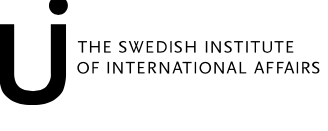Internet governance or the question of legitimacy
6 Mar 2018 01:00h
Event report
A seminar was organised by the Swedish Institute of International Affairs to examine the legitimacy of the multistakeholder Internet governance arrangements.
The seminar took place in Stockholm on 6 March 2018, and drew a mix of Internet and Internet governance practitioners, academics and researchers. Participants focused on ICANN after the IANA transition, with the objective of providing input into a three-year study coordinated by Prof. Jan Scholte at the University of Gothenburg with funding from the Swedish Research Council. The working title of the study is, ’Legitimacy outside the State: Governing the Global Internet’.
The starting point of the study is the recognition that past research on legitimacy has focused mostly on the state, reflecting a historical situation where governance was usually equated with government. The project attempts to analyse legitimacy in private governance beyond the nation-state and to probe ideas on whether the private management of global goods – in the case of ICANN – is accepted by governments after the withdrawal of the US government from its oversight role. The proposed approach of the study is sociological and not normative. It will ask whether people think ICANN is legitimate, and what they perceive as ICANN’s legitimacy.
The Internet has evolved outside the sphere of governments and its distributed governance arrangements reflect its underlying distributed infrastructure. It was noted that in the past, the main argument of the Internet institutions had been that they derived their legitimacy from the good functioning of the Internet. Beyond that very basic notion they had not produced a coherent conceptual legitimacy framework. In the context of the IANA transition, there had been much focus on ICANN’s accountability – in what one participant described as ‘accountability shows’ – without, however, providing a conceptual framework. The point was made that while there was a rich body of academic studies of legitimacy as a key component of good and effective governance, in diplomatic terms, this discussion was usually avoided, as it would open a Pandora’s box. In a UN context, the concept of national sovereignty prevails and in terms of Internet governance, the debate usually boils down to a binary choice where governments per se are considered legitimate, while private or hybrid arrangements have to prove their legitimacy. This had been the core of the debate during the World Summit on the Information Society (WSIS) which in 2005, led to the recognition that ‘the existing arrangements for Internet governance have worked effectively’.
It was noted that the global context had changed since the creation of ICANN, twenty years ago. The innovative approach taken in 1998 by setting up a private organisation to deal with the administration of a global public good, reflected the prevalent mood of the time, with an optimistic belief in the forces of globalisation and free market economics. This is no longer the case. What back in the nineties was considered the ‘Washington Consensus’, based on free trade, open markets and market forces, is now being challenged by one of its main drivers, the US government.
This changing context, with a perceived crisis of multilateralism, also changed the broader Internet governance debate. One open question that is likely to come to the fore is the question of power – power of governments and power of the different stakeholder groups.
Participants considered the proposed study to be timely. ICANN after the IANA transition was no longer seen as an extension of the US government, but was now a stand-alone organisation, and therefore, perhaps more vulnerable than before. As Internet governance discussions are bound to continue, a consistent argument to explain and defend its legitimacy would therefore be helpful and necessary.
Related topics
Related event

Who Controls the Global Internet?
Stockholm, Sweden
